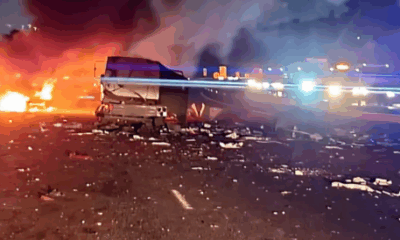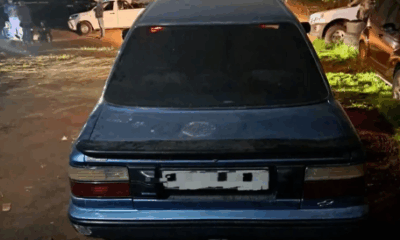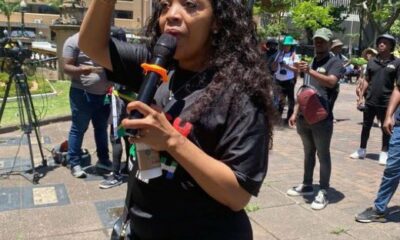News
Time to Rethink the Badge: Why South Africa’s Police System Needs a Complete Overhaul

When the South African Police Service (SAPS) proudly announced the arrest of a suspect linked to the brutal murder of Olorato Mongale, it was met with a bittersweet reaction. On one hand, it was a rare win in a sea of unsolved cases. On the other, it reminded the country just how broken the system really is.
Despite this high-profile breakthrough, the broader truth remains: SAPS is struggling—not because it lacks manpower or money, but because it’s built on a 30-year-old model that no longer fits South Africa’s escalating crime landscape.
Policing the Past, Not the Present
Gareth Newham of the Institute for Security Studies didn’t mince words: “Our policing model is outdated and ineffective.” Since its formation in 1995, SAPS has prioritized quantity over quality flooding streets with low-skilled officers in visible uniforms rather than building a force of modern, tech-savvy crime-solvers.
Newham argues that crime prevention isn’t about numbers on the street, but minds behind the scenes. “We need fewer people, but with sharper skills professionals who can work with data, adapt to technology, and collaborate with civil society and private security,” he said.
This insight is particularly timely, as South Africa continues to grapple with surging levels of gender-based violence, hijackings, kidnappings, and organized crime. More boots on the ground won’t fix that. Smarter, specialized policing just might.
The Reality Behind the Headlines
For former Hawks general Johan Booysen, the success of the Mongale case is a rare exception. “Fewer than 10% of murder cases in South Africa result in a conviction,” he said. “That means over the past decade, more than 200,000 murderers have never faced justice.”
Booysen, now head of investigations at Fidelity Security Services, blames systemic failures—under-skilled detectives, poor leadership, lack of mentorship, and zero career incentives in the detective service. Many SAPS detectives are buried under heavy caseloads with little more than a notepad and hope.
And even when cases are solved, it often requires the intervention of private investigators or community pressure, which raises serious questions about the state’s capacity to ensure justice for all, not just those whose cases make headlines.
A Glimmer of Change?
There is cautious optimism, though. Newly appointed Police Minister Senzo Mchunu appears to understand the scale of the problem and is reportedly taking steps toward modernization. But experts warn that without a full structural overhaul, real change may remain out of reach.
Booysen suggests revamping the detective division with proper training, digital tools, mentorship programs, and financial incentives to attract talent. “We need detectives who are motivated, equipped, and respected. That’s not the case right now,” he said.
A Nation Desperate for Justice
For Professor Nirmala Gopal, a criminologist at the University of KwaZulu-Natal, the problem is also one of access and equity. “We need more satellite police stations, express courts, and psychosocial support for victims—especially women and children,” she said.
Gopal emphasized that the Mongale case only gained traction because it struck a nerve with the public. “There was pressure, visibility, and political will. But what about the countless GBV cases that never receive that kind of attention?”
Her call is echoed by many on social media, where South Africans regularly express heartbreak, anger, and disbelief over the justice system’s failure to respond to the daily violence they endure.
Behind the Blue Curtain
Brigadier Athlenda Mathe, SAPS spokesperson, defended the institution’s work, highlighting collaboration between SAPS and private security in cracking the Mongale case. She also pushed back on claims that the service is failing entirely: “Many cases are solved quickly, but they don’t make the news,” she said.
Still, critics argue that highlighting a few quick arrests doesn’t excuse the chronic inefficiencies plaguing the broader system.
Where Do We Go from Here?
Reforming SAPS isn’t just about patching up what’s broken it’s about reimagining public safety from the ground up. That means shifting the focus from old-school visibility to 21st-century problem-solving. It means investing in people, not just equipment. It means holding leaders accountable and putting the right talent in the right positions.
Above all, it means restoring faith in a system so many have lost hope in.
As Booysen warned, “If we don’t act now, things will get exponentially worse.”
And for the millions of South Africans who live in fear every day, that’s not a risk the country can afford to take.
{Source: IOL}
Follow Joburg ETC on Facebook, Twitter , TikTok and Instagram
For more News in Johannesburg, visit joburgetc.com



























